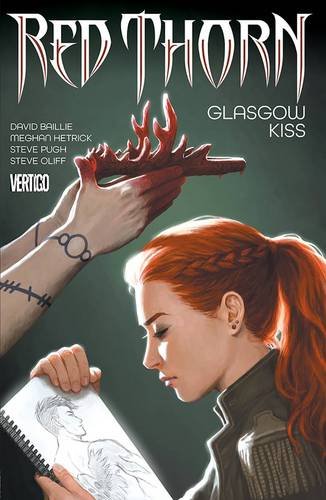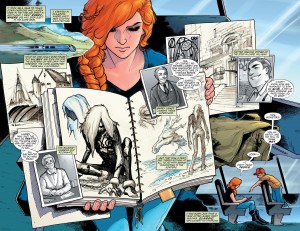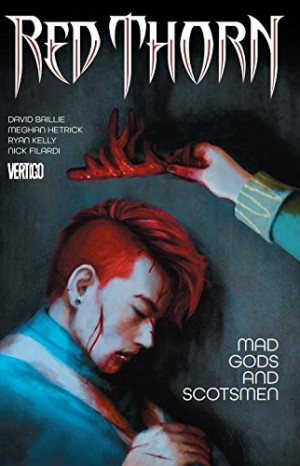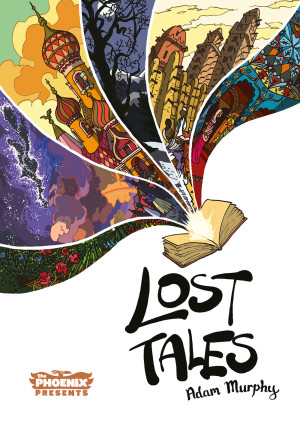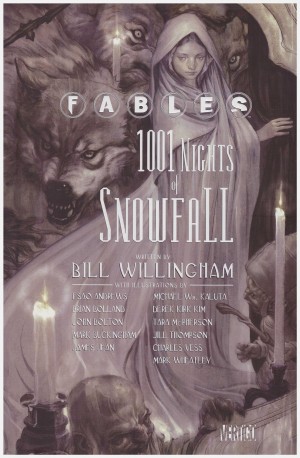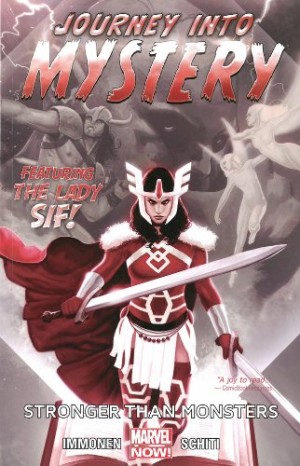Review by Frank Plowright
25 years after her sister went missing, Isla Mackintosh, not born when that occurred, visits Scotland to retrace her sister’s footsteps. Isla’s not without odd happenings in her own life. She keeps quiet about it, but has known since school that she’s somehow able to generate events just by drawing them. One tragic mis-step convinced her this is a talent best not utilised, until there’s a sudden need to get out of jail free. It awakens more than she can imagine.
Meghan Hetrick’s version of Glasgow is convincing if you don’t know the city, and some landmarks are brought to life in the opening chapter in a manner not depicted in graphic novels since The Bogie Man. Red Thorn, though, is a story of contrasting Scotlands, the present and the ancient past and Hetrick’s much better when left devoid of reference material to create a world of pagan creatures who disappeared in humanity’s earliest days. Among them is Thorn, a Demi-God betrayed and imprisoned for centuries, but returned to life after Isla finds herself drawing the same unknown person over and over again for the best part of a day.
Amid heavy doses of sentimentalising about Scotland, a Scottish pastime, David Baillie’s script toys with Celtic myths, but with regard to Scotland’s better known legends he’s willing to spring a surprise, particularly around Loch Ness. He’s not one to divulge answers lightly however, and that’s something readers might find as frustrating as Isla over this opening volume of two, since it’s not carried out in a subtle fashion. Thorn’s constantly claiming to know answers to pretty well anything Isla cares to ask, but there’s always another mission that needs seen to beforehand. It comes across as artifice until the final chapter when some answers are forthcoming and the narrative purpose clarifies. These answers are not what Isla wants to hear, nor can she have any certainty that’s she’s been told the truth.
Baillie’s constructed a big stretchy canvas and Glasgow Kiss merely sketches on it, laying out a conflict between two age-old enemies replaying a combat from millennia past, but now on more even ground. Isla’s ancestry is relevant to matters, but will she be swept along to hold her own or chewed up and spat out? There’s more than enough intrigue and fascination to ensure this horrific fantasy can sustain a series, and it concludes in Mad Gods and Scotsmen.
